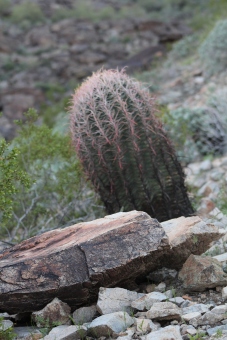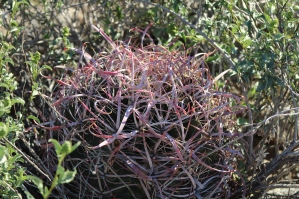6 Reflections on Generosity of Spirit: Barriers to Working in the Open
Samantha Streamer Veneruso
So in December I used Bronwyn Hegarty’s Attributes of Open Pedagogy, along with several other documents to develop a page to use in conversation with faculty about open pedagogy. Last week, I had the opportunity to share it with a small group, and it worked really well in terms of focusing the discussion and talking about open pedagogy to interested, but unsure faculty. I will use it again for an upcoming discussion as part of a faculty series on teaching in a digital age. This series has been wonderful; the faculty engaged and participatory, and the ideas that have flowed have been really interesting.

On Wednesday as part of a brief #openlearning17 exchange about open pedagogy. I tweeted a comment that colleagues of mine had made about my open teaching methods as “fun” but not rigorous. I have heard the comment in various forms, but the main jist is “I know you do all those FUN things, but there is no time in MY course if I want to cover all the content.” I threw the comment out trying to make the point that open pedagogical practices require a new paradigm of what learning looks like, and what teaching looks like. Gardner Campbell replied that it is hard to keep a generous spirit around critiques like that:
.@professorsv @sgreenla @StephJBlackmon Hard to keep a generous spirit around “critiques” like that #openlearning17
— Gardner Campbell (@GardnerCampbell) March 15, 2017
That led me to today’s reflection. Gardner’s words are exactly it. Open pedagogy does require a generous spirit on a lot of levels: generous in the sense of being open and sharing with others; generous in terms of trusting others; generous in terms of our beliefs about students; generous with ourselves and our own faults and failures.

So what are the barriers to a generous spirit? What are the barriers to open pedagogy beyond lack of open content? I think we can talk about open pedagogy and evangelize about, but if we don’t acknowledge the barriers and talk about the underlying systems and beliefs which fuel those barriers, we can’t shift the larger conversation. As part of a @VConnecting session at #oeglobal, a question was raised as to whether the open ed community was really small, just under communicated or just had trouble institutionalizing. Without understanding the barriers to the generous spirit that we need to nurture to support open education. open pedagogy and practices, we will not be able to move it forward.
So some of the barriers I see are:
Perceptions of teaching and learning
Open practices challenge conceptions of what quality teaching and learning looks like. It doesn’t match all the models of systematic education that we have experienced. Open is perceived fun for students because they are engaged, but not real teaching, not rigorous or challenging enough. There is a belief, maybe, that students don’t really learn from those open activities; they are just being entertained. Open materials are not of high quality because they are free; anything that is given away has to be lower quality than something one pays for. Open teaching practices are just not effective for ensuring that students know the content. There isn’t enough time in the class to cover all the content, so additional activities can’t be added in.
Fear
Faculty often feel that as part of their evaluation they need to demonstrate their content expertise. Further, evaluators may view open pedagogy as less rigorous and less quality than traditional practices. This is especially problematic for non-tenured, part-time or contingent faculty whose renewal is dependent on quality observations and evaluation.
Some faculty fear students’ reactions to open practices. What happens if students choose not to do the work? Students have been trained in a particular system of learning, just as faculty have. Further, sometimes students resist open activities because they are fearful or unfamiliar with the expectations, and the activities are challenging, asking them to engage fully and create, which makes some feel uncomfortable.
I have also seen faculty fearful of sharing their practices and ideas with others because they are afraid of being judged or critiqued by other faculty (see above for the self-defeating cycle.) It is hard to be open when you are fearing judgement. It is hard to take risks when you are afraid. If administrators and faculty leaders don’t understand or see value in open pedagogical practices, it is hard to create an environment where those practices can thrive.
The Prestige Economy

There is a prestige economy in academia. There is fear that if you give away your ideas, you will lose prestige, especially in some hyper-competitive environments. On one side, there is the idea that if you aren’t paid for something, then your work isn’t valuable. On the other side, there is the sense that if you share your ideas and materials too freely, that you will be left with nothing and someone else will profit through exposure, and money (which we know is an illusion) that comes with that exposure. It is hard to be generous when you are in an environment that doesn’t value, support or reciprocate generosity.
Other more common and obvious barriers are time and technological expertise, but ultimately, I think these fit into the categories above. If the culture values and supports open practices, and supports people to take risks, then time and technological expertise become moot because people will have the support and trust to learn.
There are more, I am sure, but I was trying to sketch out an ecosystem of what some of the barriers are. I would be interested in others takes on this. My perspectives might not be valid.
About the Author
Samantha Streamer Veneruso is a Professor of English at Montgomery College, a 2 year community college outside of Washington D.C. She is an advocate of all things community college, students, open practices, and critical pedagogy. @Professorsv
Attribution

